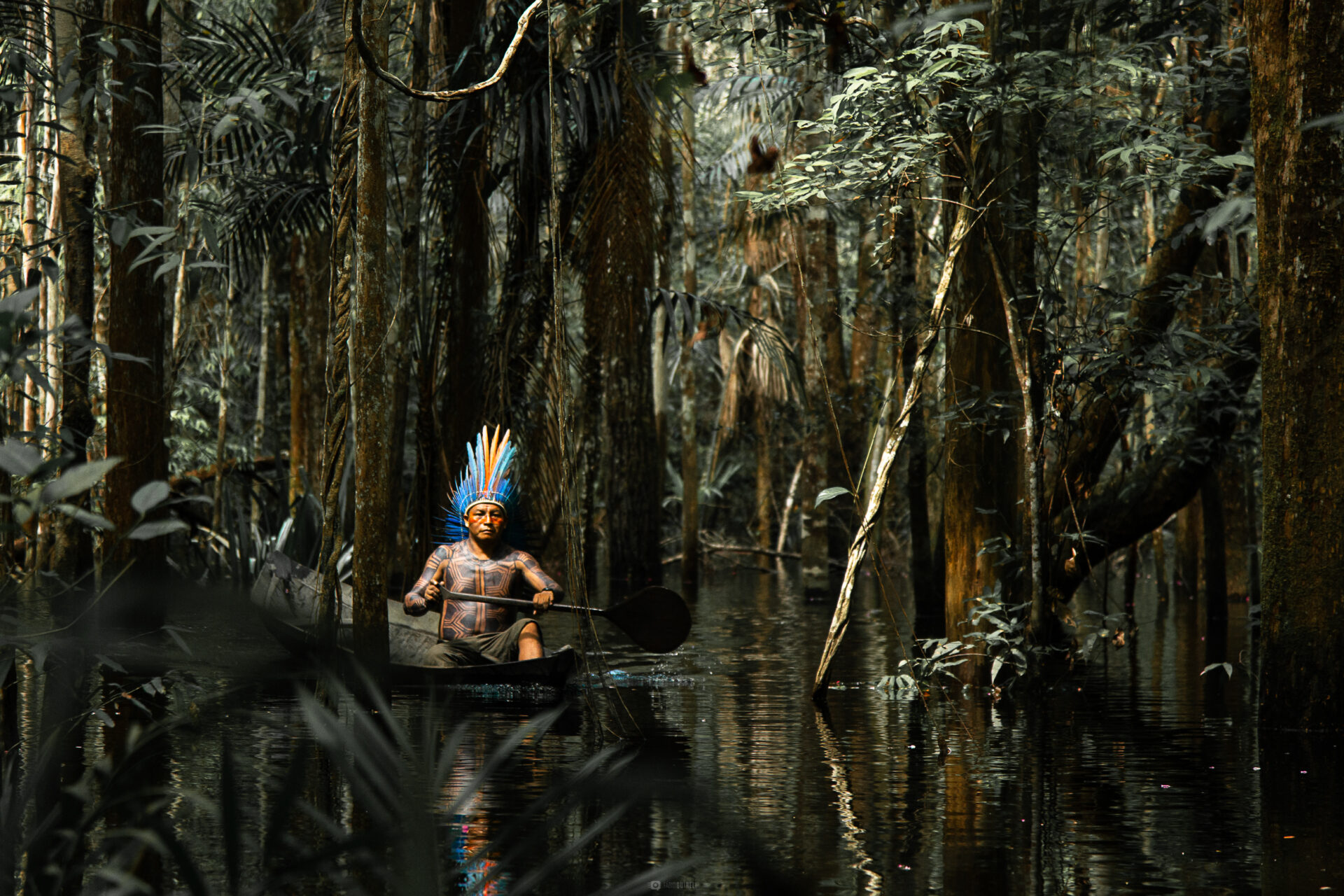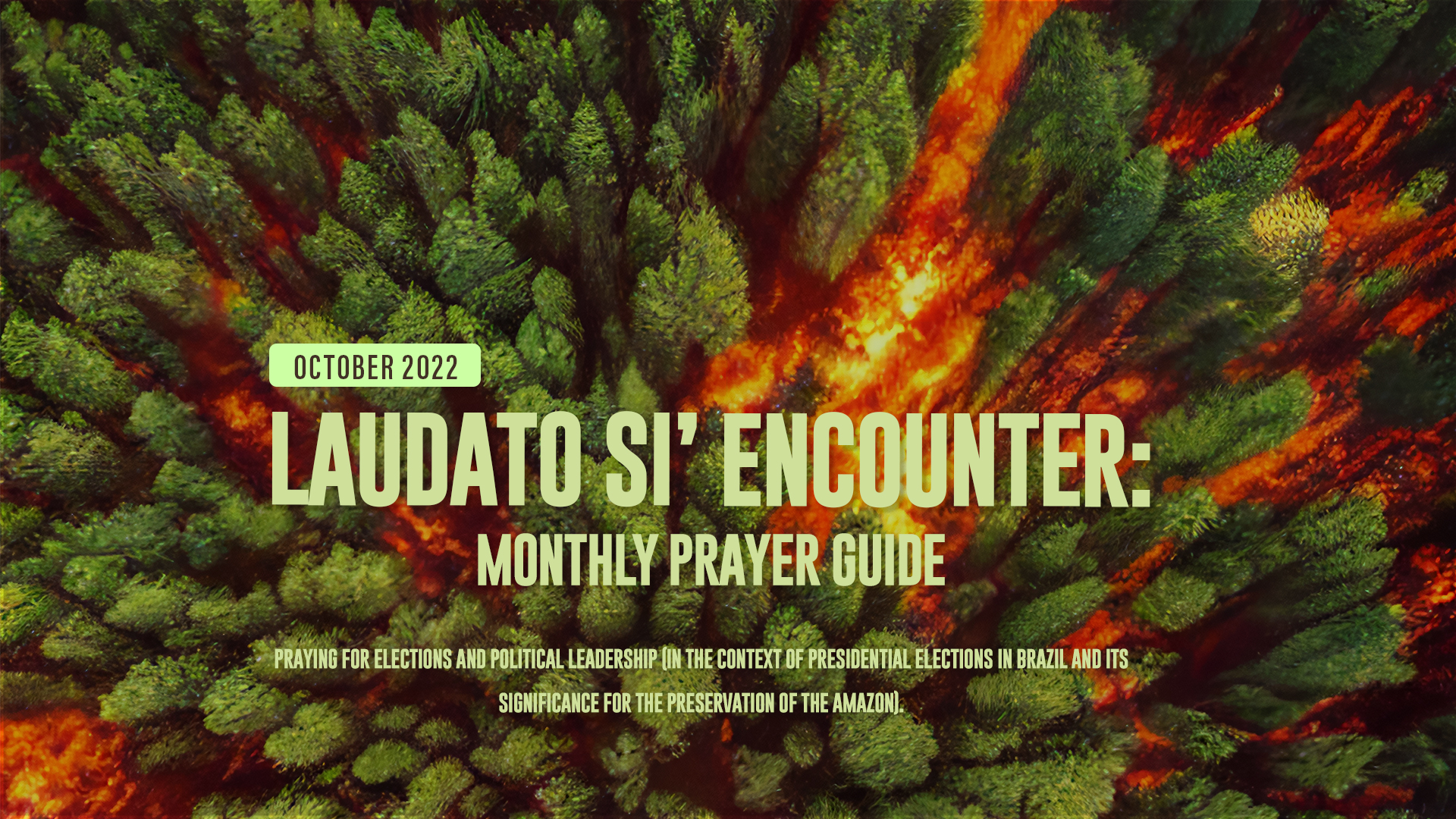
Monthly intention
DISCERNING FOR PEACE AND GOOD! | Lk 18:1-8
Hearing Creation’s Cry
Hearing Creation’s Song
Ecological conversion story
Inspiring Saint
Taking Action
If you prefer, you can download this resource in PDF format by clicking here.
Monthly intention
October 2022
Praying for elections and political leadership (in the context of presidential elections in Brazil and its significance for the preservation of the Amazon).
“The myopia of power politics de- lays the inclusion of a far-sighted environmental agenda within the overall agenda of governments. Thus we forget that “time is grea- ter than space”, that we are always more effective when we generate processes rather than holding on to positions of power” (LS 178).
Prayer for global summits
For political leaders across the globe that are called to work together and for all of us engaged in raising “the cry of the earth and the cry of the poor” in the run up to those summits. May the Holy Spirit guide us to keep most vulnerable com- munities at the heart of each political decision as a compass for social and climate justice.
May the outcomes of those internatio- nal summits be answering in scale and depth to the emergencies the world is facing and contribute to building a renewed harmony between humanity and nature.
May the Lord give each of us the stren- gth and passion to be a unique piece of a converted planetary community. Amen.
Chiara Martinelli, formerly of In- ternational Cooperation for Deve- lopment and Solidarity (CIDSE). Laudato Si’ Animator, Member of the Global Membership Council & Member Organization. Brussels, Belgium.
This is a prayer from the Laudato Si’ Movement Prayer Book available for downloading here
Go to top
DISCERNING FOR PEACE AND GOOD! | Lk 18:1-8
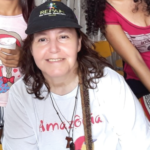 Dorismeire Almeida de Vasconcelos, a laywo- man who is a member of the Secular Franciscan Order and a catechist, has a BA in Literature and a graduate degree in Language and Teaching from the Federal University of Pará. She is a socio-environmental activist who works with various socio-environmental movements in the Xingu region such as the REPAM Xingu Committee in the area of Human Rights and with the REPAM Brazil International Advocacy for Xingu. She is also a Laudato Si’ Animator and served as an auditor for the Special Synod of Bishops for the Amazon (2019).
Dorismeire Almeida de Vasconcelos, a laywo- man who is a member of the Secular Franciscan Order and a catechist, has a BA in Literature and a graduate degree in Language and Teaching from the Federal University of Pará. She is a socio-environmental activist who works with various socio-environmental movements in the Xingu region such as the REPAM Xingu Committee in the area of Human Rights and with the REPAM Brazil International Advocacy for Xingu. She is also a Laudato Si’ Animator and served as an auditor for the Special Synod of Bishops for the Amazon (2019).
Now is the time to pray with fervor and not to be discouraged in the face of the challenges and reality imposed on us by the political and social scenario in Brazil. These days we are undergoing an important time by exercising our right and duty to vote for candidates who can answer the people’s needs and wishes in terms of quality public policies for citizens, care for our common home and democracy. This is a crucial election in Brazil.
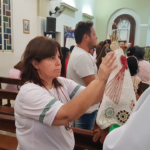 The Lord teaches us that as God’s beloved sons and daughters we must be committed to PRAYER, that is, to pray in thanksgiving, praise and petitioning. However, we must be also committed to action, acting to change the perverse reality of social inequality, violence, destruction of nature and so many other evils. We are signs of hope so we must not be discouraged.
The Lord teaches us that as God’s beloved sons and daughters we must be committed to PRAYER, that is, to pray in thanksgiving, praise and petitioning. However, we must be also committed to action, acting to change the perverse reality of social inequality, violence, destruction of nature and so many other evils. We are signs of hope so we must not be discouraged.
When we read the Word of God (Lk 18:1-8) the parable tells us that there was a judge who did not fear God and did not care about the people entrusted to him. Likewise, we sometimes see politicians who are not committed to the population, let alone are God- fearing. But in that same town there was a widow who kept coming to him with the plea, “Grant me justice against my adversary.” Just like so many people, men and women who work daily to guarantee human rights and nature’s rights and to defend our biomes, the common home and good living.
This judge heard her but he would not listen to her for a long time until finally, one day, he got annoyed with this woman’s echoed voice: “I will see that she gets justice, so that she won’t eventually come and attack me.” This is often the case with political authorities. This is what we call the power of prayer coupled with advocacy. And the Word of God speaks to us through this parable:
“Listen to what the unjust judge says. And will not God bring about justice for his chosen ones, who cry out to him day and night? Will he keep putting them off? I tell you, he will see that they get justice, and quickly. However, when the Son of Man comes, will he find faith on the earth?”
God calls us to undertake our mission of building peace that is based on justice created in the defense of life, the struggle to guarantee rights and advocacy for the transformation of society. That is why it is the duty of God’s children to commit themselves to choosing Peace and Good, which is not only a peaceful action but also a transformative one!
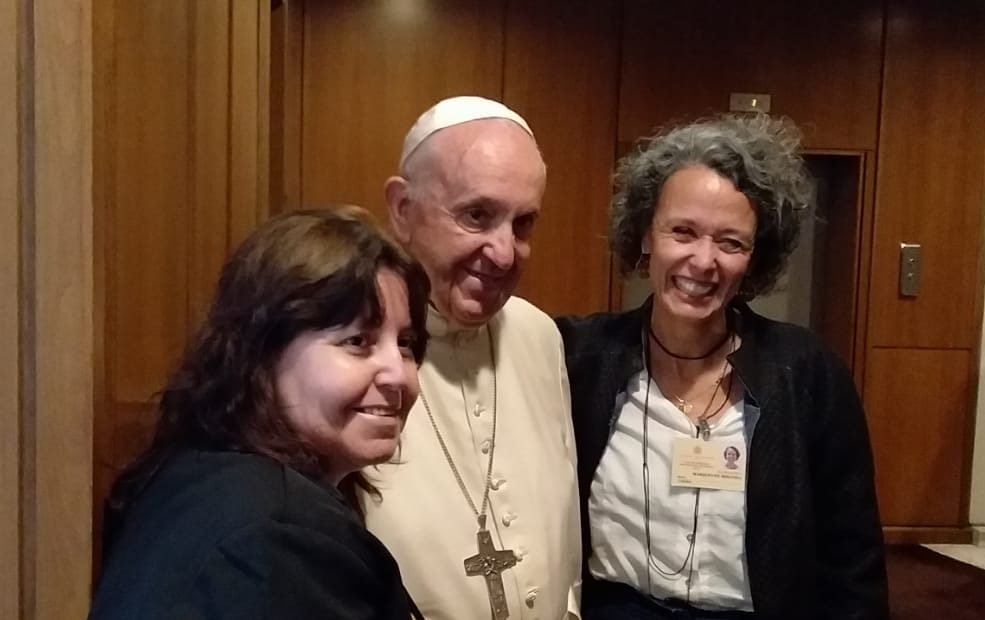
Let us pray to God for the choice of Peace and Good in these elections, for our people and for our biomes. May we face the reality of inequality and violence imposed on this country by the mis- administrations that do not defend life.
Go to top
Hearing Creation’s Cry (Amazon region)
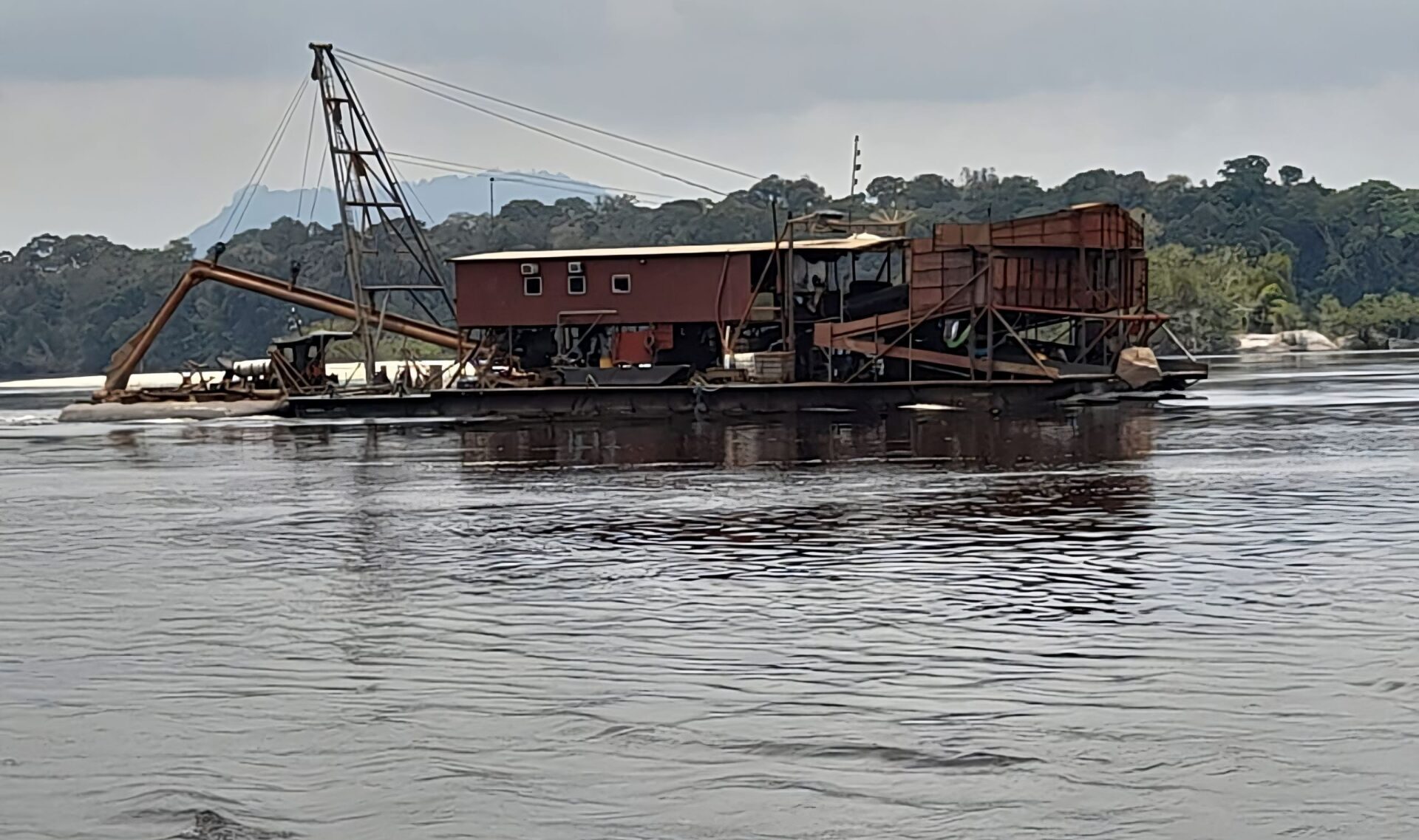
Ferry up the Rio Negro in Brazil to mine for gold in Indigenous lands | Photo: Brazilian Indigenous people / Reproduction
Mining ferry up the Rio Negro, in the Brazilian Amazon, used for gold mining in Indigenous lands. The picture showcases the reality of the Brazilian Indigenous people’s struggle. Indigenous peoples in Brazil are among those who most suffer criminal invasion of their lands.
A study by the Federal University of Minas Gerais in Brazil shows that at least 23% of deforestation for mining purposes in the Amazon takes place in Indigenous reserves and other legally protected areas.
In the daily lives of native people residing in these locations in the Brazilian Amazon, ferries for mining purposes are being seen more and more often and the increase in violence and abuse by miners connected to organized crime has become more frequent.
Go to top
Hearing Creation’s Song
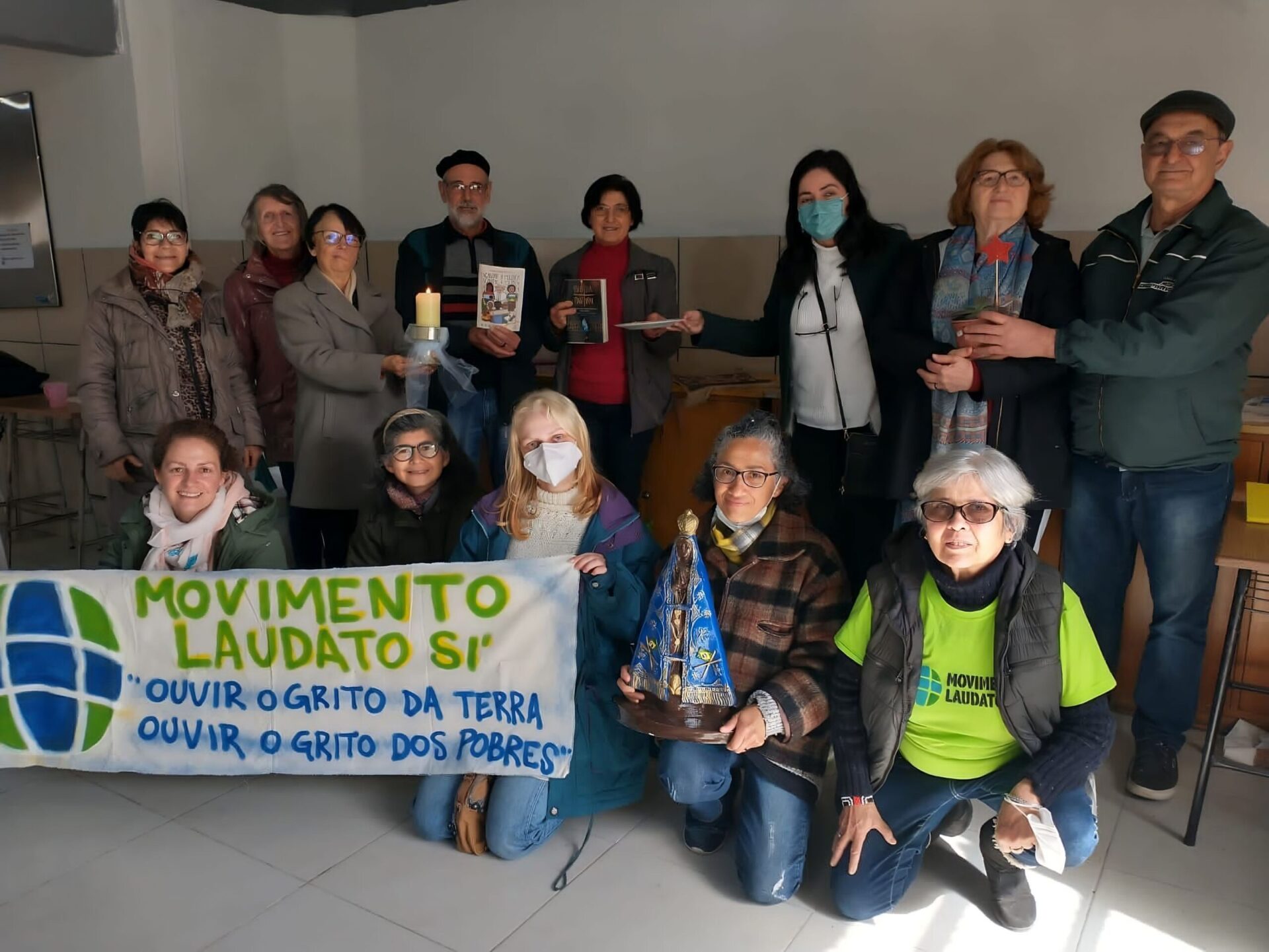
With the theme “Hearing Creation’s Cry”, the Laudato Si’ Movement Chapter of Rio Grande do Sul, Brazil, held its first in-person retreat, on September 3-4, 2022. The retreat marked the first week of the Season of Creation this year.
A total of 25 people participated, all coming from different places. All of them were committed to the care of our common home, to fighting for the least among people, the poor, and advocating for human rights and nature. The group included Laudato Si’ Animators, Catholic religious brothers and sisters, environmental activists and leaders of African-Brazilian religious traditions.
Through dialogue, communion and reflection, the retreat provided a time for contemplation, meditation, and witnessing of concrete action.
There were various testimonies, such as that of Sr. Iraci F.C. Santos (a Sister of Saint Joseph of Chambery) about her project to plant seedlings; or by Br. José Deon, who discussed his commitment to the waste pickers at recycling sheds; and by the young lay woman Luisa Jahn, an activist with Eco pelo Clima who told the story of her movement. In addition to the moments of sharing, participants visited a community vegetable garden and African-Brazilian worship space Terreiro da Mãe Eliane, where there is an Unconventional Food Plants garden.
The retreat ended with a moment of get-together and interreligious celebration. As Rabeca Peres, the Laudato Si’ Animator, says: “All united in one heart, in unity for the care of creation, we said goodbye to each other with the commitment to following faithfully as disciples of Jesus Christ, listening to the Voice of Creation, and acting prophetically in the face of the challenges posed by the cry of Mother Earth and the cry of the poor.”
Go to top
Ecological conversion story
By Rabeca Peres
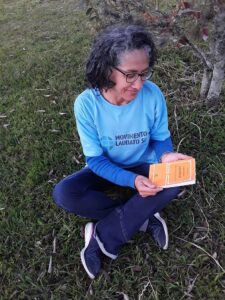 My name is Rabeca Peres da Silva. I’m a Laudato Si’ Animator living in the city of Porto Alegre, state of Rio Grande do Sul, Brazil. My eco-conversion is an ongoing challenge. I try to nurture my conversion with small actions in my daily life.
My name is Rabeca Peres da Silva. I’m a Laudato Si’ Animator living in the city of Porto Alegre, state of Rio Grande do Sul, Brazil. My eco-conversion is an ongoing challenge. I try to nurture my conversion with small actions in my daily life.
Before I participated in the Laudato Si’ Animators program, I was a missionary at CIMI, the Indigenous Missionary Council of the Catholic Church, and worked to support the struggle of Indigenous peoples in the Porto Alegre metropolitan region in southern Brazil. From Indigenous people I learned that the earth is God’s gift to us. The earth is sacred, a space for coexistence, well-being, and health where every way of being and living in harmony is developed. However, their territories are seen by the economic powers as a space to establish depleting extractive and agricultural projects. Therefore, their struggle for the right to demarcate their lands is fair and legitimate. From them, I also learned the importance of resistance in the face of economic and political models of the capitalist system, of a disposable and deadly culture. Their way of being and fighting is rooted in the strong spirituality of their cultures.
With the outbreak of the pandemic that called for lockdown, I decided to search the Internet for meditation and spirituality courses. That was when I found the Laudato Si’ Animators Course. At that time, Laudato Si’ Movement was still called the Global Catholic Climate Movement. I took the course in 2020 and throughout my journey I read and meditated on Pope Francis’ encyclical Laudato Si’ – On the Care of Our Common Home. I was delighted by the guidelines that were presented there, such as ecological conversion and living an ecospirituality for the sake of God’s creation, which is wounded, threatened and violated; a creation that is crucified by our human actions. In the program, I felt more and more that it was time for me to act but no longer alone: it was time to act together, as a community, locally and globally.
It was a true awakening in integral ecology. The conferences unsettled me with regards to the importance of taking up this cause of the care for our common home. Caring for others, for rivers, for forests, for animals, for life was a divine call to all of us who participated in the program. I kept remembering the Indigenous peoples of Brazil and their tireless struggle for the protection of mother earth, as Pope Francis states, “When they [Indigenous peoples] remain on their land, they themselves care for it best” (LS 146).
The Animators Program also reminded me of the struggle of so many people in church, social, environmental, and ecological movements, as well as our brothers and sisters in various areas of science (biologists, researchers), activists, and leaders of the African-Brazilian religions. As the encyclical says, we can come together with our different knowledge and actions for the common home. We are interconnected; we are ONE.
I understood that an outward looking Church is also a Church that listens to the different voices of society, listening and journeying together to reflect and seek solutions for climate change, in addition to acting in local communities and influencing public policies that care for the common good. Another challenge is to believe that together we can pressure world leaders to comply with international agreements on climate, biodiversity loss, and the poor, who are the most affected by the impacts of those crises. I felt delighted by everything because we are not alone. When I finished the program, I felt this emptiness because I wanted to remain connected to those new members of my journey of faith and love. But a light soon shone when the Laudato Si’ Movement invited everyone who wanted to keep connected to speak out. Those people would continue to get information on the actions to be carried out globally. That was when I said my big ‘yes’ and went forward, along with other animators.
We proposed to create a Chapter in our state. Our purpose had to do with the Lahille dolphins (endangered) and cooperative fishing. It was really beautiful to pray, reflect and encourage one another for action. We organized online live events with Indigenous leaders and biologists about the earth and the water crisis. As animators, we participated in the global “Healthy Planet, Healthy People” campaign and had a retreat in early September, themed “Listen to the Cry of Creation”, to open the Season of Creation. The retreat brought us together as brothers and sisters and provided us with moments of spirituality, reflection, and testimonials of actions for the care of our common home. I am grateful to God for this opportunity to be a steward and animator of His Creation. Everything is the breath of the Spirit that takes us along unexpected paths sometimes, a Divine Breath that restores and converts us more and more. We are disciples of Jesus following in his footsteps of love for the Kingdom and for his justice. We have a mother who inspires and encourages us when we lack the wine of hope. Filled with the Spirit, she keeps saying: “Do whatever he tells you” (Jn 2:5). Thus, my conversion is a continuous awakening. Every day I ask God the Father and Mother for the grace of listening, delving into the reality of the poor and of mother nature, meeting people, praying, contemplating, and acting. Changing my lifestyle is a continuous awakening, with small steps such as replacing plastic bags for cloth bags when I go shopping. I am still delighted and happy to follow Jesus Christ as His instrument in the Laudato Si’ Movement, knowing that I am journeying with so many animators from all over the world for the glory of God and the construction of the new heaven and new earth.
Go to top
Saint Francis of Assisi
Inspiring saint
Feast Day: October 4th
Universal Brother
By Daniel Castellanos, LSM Theological Consultant
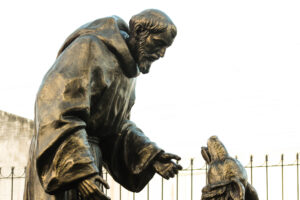 Much has been learned and much still remains to be learned from Saint Francis of Assisi, one of the great figures who inspire believers and non-believers alike to care for all beings of creation, human and non-human.
Much has been learned and much still remains to be learned from Saint Francis of Assisi, one of the great figures who inspire believers and non-believers alike to care for all beings of creation, human and non-human.
We know and pray with his Canticle of Brother Sun, and the stories we read about his relationship with animals are moving. What was Saint Francis’ secret in his relationship with animals? How could he experience such an intimate, compassionate, tender and affectionate bond with them?
I recently read, from the pen of two of Francis’ sons, Capuchin friars Luiz Carlos Susin and Gilmar Zampieri, the answer to this question: “expropriation is the secret of a universal fraternity in Saint Francis.” We can say it in many ways: animals are not at our disposal, we must avoid the domination and availability of animals for ourselves, we must renounce the possession and indiscriminate use of animals; they are not available at our discretion; they do not exist for human pleasure and comfort.
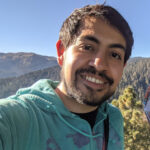 By all means, major cultural changes would be necessary to establish non-dominant relationships with animals. Just imagine the concrete consequences of this attitude in the areas of our lives where we establish bonds with them: for entertainment, for education and research, for food, for our clothes and shoes, and as pets.
By all means, major cultural changes would be necessary to establish non-dominant relationships with animals. Just imagine the concrete consequences of this attitude in the areas of our lives where we establish bonds with them: for entertainment, for education and research, for food, for our clothes and shoes, and as pets.
Inspired by Saint Francis, we can use this criterion for action as an exciting way to inhabit the common home with care and brotherhood/sisterhood that includes animals, great companions of our adventure in the world.
Go to top
Taking Action
Chief Odair “Dadá” Borari, one of the main characters in The Letter
This month we have very exciting news. On October 4, YouTube Originals released the grand documentary film, The Letter, telling the story of the Laudato Si’ encyclical letter and how the climate crisis is strongly affecting the Earth and all those who inhabit it.
The voices that are present in the dialogue documented in the film come from communities of the Indigenous, poverty, youth, and science. One of them is Cacique Odair “Dadá” Borari, who comes from the Borari people in Brazil’s Amazon region, where he has led groundbreaking work on environmental defense in a very dangerous place.
Chief Odair “Dadá” Borari is a leader of the Novo Lugar community of the Borari people. The Borari people reside in the Maró Indigenous Territory, located in present-day state of Pará, Brazil. The Maró lands include old-growth forests, teeming with life and beauty, where logging companies see only potential for their own profit.
As illegal loggers began to increase their incursions into the Maró Territory, Chief Dadá became expert in the use of a new technique to capture GPS-tagged photographs of their activities. His work created evidence of the loggers’ crimes, forcing government authorities to take action.
As a result of his courageous leadership, Chief Dadá was captured and tortured by mercenaries, and must now travel with a security escort. He continues advocating for the protection of his people and land, and is now training the next generation of leaders.
Together, we must make the most out of this precious opportunity and spread the wisdom of Laudato Si’ on a large scale. We count on you to spread the word to all your friends and acquaintances about this incredible initiative.
On the other hand, we are seeking donations to boost the film campaign and ensure that it is widely known throughout the Church and beyond. We are beginning to work with leaders and members of our movement to get the film screened in as many parishes and communities as possible on every continent.
We humbly come to you today, asking for your support. If you are able to, I encourage you to please consider donating today to ensure the film reaches every corner of the world.
The film premiere was in Vatican City on October 4, the Feast of St. Francis that closed the Season of Creation. The Letter is available to watch on YouTube for free, available to everyone.
We hope the launch will be followed by an ocean-like ripple with screenings around the world and a campaign to provide concrete tools for communities to take bold action for climate and ecological justice.
Moreover, we’ll bring the film to the halls of power—ranging from parliaments all the way to UN summits as COP27 and COP15—demanding politicians to do better.
It will be a lot of work, but we’re very excited. We’re counting on you!
Go to top






